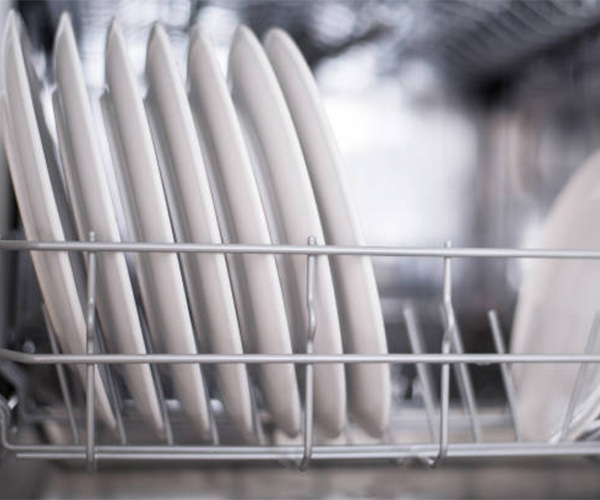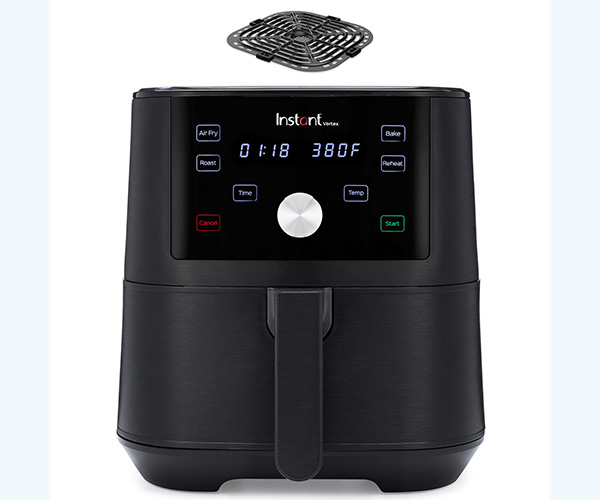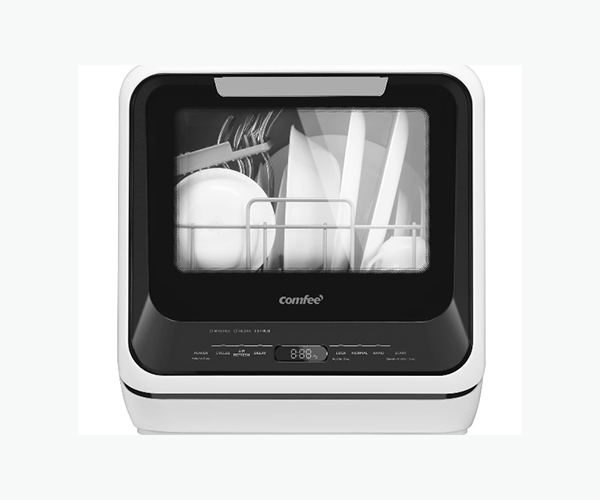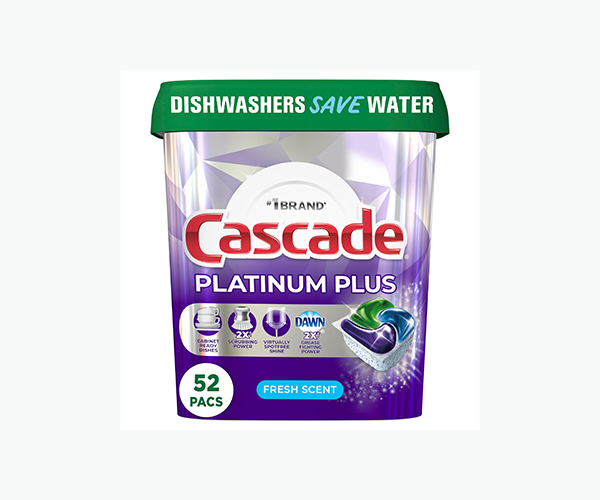Introduction
Remember the days of standing over the sink, sleeves rolled up, scrubbing away at a mountain of dishes? I certainly do. There was a time when my tiny kitchen lacked something I now consider indispensable – a dishwasher. Not just any dishwasher, but the right one that fits seamlessly into my daily routine, turning a tedious chore into a hassle-free task. In this article, we’re diving deep into the world of dishwashers. From their humble beginnings to the high-tech devices they are today, we’ll explore everything you need to know to choose the perfect dishwasher for your home. Whether you’re a first-time buyer or looking to upgrade your current model, this guide is packed with insights on sizes, energy efficiency, features, and much more. So, grab a cup of your favorite beverage, and let’s embark on a journey to find your ideal kitchen companion.
Understanding Dishwashers
Since its invention in the late 19th century, dishwashers have undergone significant development. They were formerly luxury goods, heavy and ineffective, but now they are essential kitchen appliances, fusing cutting-edge technology with ease of use. Two terms you may hear a lot as we dive into the realm of dishwashers are “high loop dishwasher” and “24-inch portable dishwasher.” In order to assist you in making an informed choice, let’s break down these phrases and examine the development and varieties of dishwashers.
Dishwasher Evolution and History
The 1880s marked the start of the dishwasher’s voyage. These machines have changed dramatically over time from their mechanical, hand-operated beginnings. Electric dishwashers first appeared in the 20th century, and as time passed, features like sensors, timers, and several washing modes were added. Dishwashers of today are marvels of contemporary engineering and design in addition to being useful appliances.
Types of Dishwashers
When selecting a dishwasher, understanding the different types available is crucial. The most common types include:
- Built-In Dishwashers: These are the standard models found in most homes, integrated into the kitchen cabinetry. They offer a seamless look and typically have a larger capacity.
- 24-Inch Portable Dishwashers: Ideal for those with space constraints or renting their homes, a 24-inch portable dishwasher offers flexibility. As the name suggests, these units are portable, allowing you to connect them to a faucet and roll them away when not in use. Despite their compact size, they often provide ample space for a day’s worth of dishes for an average family.
- Countertop Dishwashers: Smaller than the 24-inch portable models, countertop dishwashers sit on the kitchen counter and are perfect for small apartments or as a secondary dishwasher in large homes.
- Drawer Dishwashers: These come in single or double-drawer configurations, offering convenience and efficiency, especially for smaller loads.
The Operation of Dishwashers
Gaining an appreciation for the basic functioning and features of various dishwasher types can be facilitated by knowing the basics of dishwasher mechanics. ‘High loop dishwasher’ configuration is a crucial part of many modern dishwashers. Before attaching the dishwasher drain hose to the drain, this design calls for routing it in a high loop, usually under the kitchen sink. This configuration is essential to maintaining hygiene and efficient cleaning by stopping the backflow of unclean water into the dishwasher.
Dishwashers operate by misting dishes with hot water that has been diluted with detergent. In order to optimize water usage, advanced versions even have soil sensors. Sensors use the amount of dirt on the dishes to change the cycle. The rinse cycle starts after the wash cycle, and depending on the model, the drying phase comes last.
Key Innovations in Dishwasher Technology
Over the years, dishwashers have seen numerous technological advancements:
- Energy Efficiency: Modern dishwashers are designed to be energy-efficient, consuming less water and electricity compared to washing dishes by hand or older dishwasher models.
- Noise Reduction: Newer models are engineered to operate quietly, making them ideal for open-plan homes.
- Smart Features: Wi-Fi-enabled dishwashers allow you to control and monitor cycles remotely, adding convenience to your daily routine.
- Advanced Drying Technologies: From traditional heated drying to modern condensation and fan-assisted drying, there are various options available for effectively drying dishes.
To sum up, the first step in selecting the best dishwasher for your house is learning about its types, history, and operation. There are many alternatives available, ranging from a high loop dishwasher system for effective cleaning to a little 24-inch portable dishwasher for smaller rooms. We’ll go into more detail about the important aspects to take into account when choosing a dishwasher in the following sections, so you can be sure to choose a model that suits your tastes and requirements.
Key Factors to Consider
There are a few important considerations while choosing the ideal dishwasher for your house. It’s important to choose the dishwasher that best fits your demands and kitchen layout rather than just picking any old dishwasher. We’ll discuss the important factors you should think about in this area, such as the value of a high loop dishwashing configuration and the applicability of a 24-inch portable dishwasher.
Size and Capacity
Understanding the Right Size: The size of the dishwasher is a primary consideration. If you have limited space or are looking for a solution for a smaller kitchen or apartment, a 24-inch portable dishwasher might be your best bet. These compact units offer the convenience of being movable, making them ideal for renters or those who frequently rearrange their kitchen space. Despite their smaller size, many 24-inch models come with surprisingly spacious interiors, capable of handling the daily dish load of an average family.
Capacity Matters: Beyond dimensions, the capacity of the dishwasher is crucial. It’s essential to assess how much you’ll be loading into the machine on a regular basis. Do you have large family gatherings often? Or are you a couple who prefers minimalistic living? The capacity should align with your lifestyle to ensure efficiency and reduce the need for multiple wash cycles.
Energy Efficiency
Saving on Bills and the Environment: In an age where environmental consciousness is as important as cost-saving, the energy efficiency of a dishwasher is a significant factor. Look for dishwashers with high energy ratings, as they consume less power and water. This not only helps in reducing your utility bills but also minimizes your carbon footprint.
Efficiency Ratings: Dishwashers with an Energy Star rating or those that exceed the Department of Energy’s requirements are typically the most efficient. They use advanced technology to reduce energy and water usage without compromising on cleaning performance.
Noise Level
The Quiet Operation: Another factor to consider is the noise level, especially if your living space is open-plan or if the dishwasher is near your living or dining area. The last thing you want is a machine that disrupts conversations or your relaxation time. Dishwashers are rated by decibel levels (dBA); the lower the number, the quieter the machine. A dishwasher rated at 45 dBA or lower is considered very quiet.
Design and Aesthetics
Fitting into Your Kitchen’s Design: The aesthetic appeal of a dishwasher is not to be overlooked. It should complement your kitchen’s design and fit seamlessly with your cabinets and countertops. Whether you prefer a sleek, modern look or a more traditional style, there’s a range of designs to choose from.
High Loop Dishwasher Consideration: When it comes to installation, one crucial aspect is the high loop dishwasher setup. This refers to the way the dishwasher drain hose is installed; it should be looped high up under the kitchen sink before connecting to the drain. This setup is vital for preventing backflow of dirty water into the dishwasher and ensuring optimal hygiene and performance.
Conclusion
A thorough evaluation of the dishwasher’s size, design, energy efficiency, and noise level is necessary when selecting one. Knowing these important considerations will help you make an informed choice that complements your lifestyle and kitchen’s appearance, regardless of whether you choose a high loop installation for hygienic reasons or go for a 24-inch portable dishwasher for its compact simplicity. To assist you in selecting the ideal dishwasher for your house, we’ll go over the many features to consider, the top brands and affordable options, and much more in the sections that follow.
Features to Look For
When it comes to selecting the right dishwasher, the features it offers can make all the difference in your daily kitchen experience. Here’s a detailed look at the key features you should consider:
Wash Cycles and Settings
The heart of a dishwasher’s functionality lies in its wash cycles and settings. Modern dishwashers come equipped with a variety of cycles tailored to different washing needs.
- Eco Mode: This energy-efficient cycle is perfect for lightly soiled dishes and glasses. It uses less water and energy, making it an eco-friendly and cost-effective option.
- Intensive Wash: Ideal for heavily soiled pots and pans, this cycle uses higher temperatures and more water to tackle tough grime.
- Auto Mode: Utilizing sensors, the dishwasher adjusts the cycle based on how dirty the dishes are. This smart feature ensures optimal cleaning without wasting resources.
- Glass Care: Designed for delicate glassware, this gentle cycle prevents etching and clouding, keeping your finest glasses in pristine condition.
- Quick Wash: Short on time? This cycle cleans lightly soiled dishes quickly, perfect for when you’re in a hurry.
Understanding these settings allows you to choose a dishwasher that not only cleans effectively but also caters to your specific needs.
Drying Technologies
The drying method is just as important as the washing process. There are primarily two types of drying technologies in dishwashers:
- Condensation Drying: This method uses the heat generated during the wash cycle. As the interior cools, water droplets on the dishes condense and are drained away. It’s energy-efficient and gentle on dishes.
- Heat Drying: Involving a heating element, this method dries dishes more aggressively. While effective, it can be harsher on plastics and less energy-efficient.
Some high-end models also feature fan-assisted drying or use zeolite minerals for enhanced drying performance.
Smart Features
In the age of smart homes, dishwashers have also embraced technology. IoT-enabled dishwashers can be controlled and monitored via your smartphone. This means you can start a wash cycle while you’re away, receive maintenance alerts, and even download new wash cycles. Some models also integrate with home assistants like Alexa or Google Home, adding convenience to your kitchen chores.
Rack Flexibility
The interior layout of your dishwasher plays a crucial role in its usability. Adjustable racks and tines allow you to customize the space according to your load. Look for models with:
- Height-Adjustable Upper Rack: This feature lets you fit tall items in the lower rack or accommodate larger plates and platters.
- Fold-Down Tines: They make it easier to place large or awkwardly shaped items.
- Third Rack: An additional rack, usually at the top, provides extra space for cutlery, small cups, or cooking utensils, maximizing the dishwasher’s capacity.
These features not only enhance the dishwasher’s flexibility but also improve its overall efficiency by allowing you to load it effectively.
In conclusion, it’s critical to take these aspects into account while selecting a dishwasher. They affect not only how well the appliance works but also how well it may be tailored to your particular requirements. Every element, from eco-friendly cycles to clever technological integration, adds a level of efficiency and convenience to your dishwashing experience, making it simple and pleasurable.
Brands and Budget
Knowing the range of brands and how they fit into your budget is essential when choosing the best dishwasher for your house. Like every major home equipment, dishwashers are available in a variety of costs and features to suit a wide range of demands and tastes. Let’s examine some of the most well-known companies and what they have to offer so you can make decisions that fit your budget.
Bosch: Renowned for reliability and efficiency, Bosch dishwashers are a staple in the market. Known for their quiet operation and energy-efficient models, they offer a range of options from basic to high-end. Bosch dishwashers often feature flexible loading options and advanced technologies like PrecisionWash and CrystalDry. While they might be on the higher end of the price spectrum, their durability and performance justify the investment for many.
Whirlpool: A household name in appliances, Whirlpool offers dishwashers that strike a balance between affordability and functionality. Their models often include sensor-based wash cycles, soil-sensing technology, and energy-efficient features. Whirlpool is an excellent choice for those who want a reliable dishwasher without breaking the bank.
KitchenAid: If you’re looking for a dishwasher that combines high performance with sleek design, KitchenAid might be your go-to brand. They are known for their quiet operation and robust cleaning capabilities, with features like ProScrub and advanced filtration systems. KitchenAid dishwashers tend to be in the mid to high price range but are worth considering for their blend of aesthetics and functionality.
Samsung: Samsung brings innovation to the forefront with its range of dishwashers. Known for integrating smart technology, their dishwashers offer Wi-Fi connectivity for remote monitoring and control. With features like the WaterWall technology and AutoRelease door, Samsung dishwashers are for those who love tech-savvy solutions in their kitchen.
GE Appliances: GE offers a wide range of dishwashers suitable for every budget. Their models often come with dedicated bottle jets, steam prewash options, and dry boost features, ensuring thorough cleaning and drying. GE dishwashers are a solid choice for those seeking functionality and variety in price points.
Budget Considerations: While brand reputation and features are important, your budget plays a pivotal role in the decision-making process. It’s essential to determine how much you’re willing to spend and what features are non-negotiable for you. Remember, the most expensive dishwasher isn’t always the best fit for your needs. Sometimes, mid-range models offer the perfect balance of price and functionality.
In addition to the purchase price, consider the long-term costs like energy consumption and maintenance. Energy-efficient models, though sometimes more expensive upfront, can save you money in the long run on utility bills. Similarly, a dishwasher with a good warranty and low maintenance requirements can be more cost-effective over time.
Conclusion: Choosing the right dishwasher brand within your budget is about balancing cost with features, efficiency, and long-term value. Whether you prioritize advanced technology, brand reputation, or simply seek a functional appliance that fits your budget, there’s a dishwasher out there for you. In the next section, we’ll explore the installation and maintenance aspects to ensure you get the most out of your chosen dishwasher.
Frequently Asked Questions About Choosing the Right Dishwasher
1. What Size Dishwasher Do I Need for My Kitchen?
- Answer: The size of the dishwasher you need depends on your kitchen space and your household’s needs. Standard dishwashers are typically 24 inches wide, suitable for most family homes. For smaller kitchens or apartments, a compact 18-inch model might be more appropriate. Measure your kitchen space and consider the number of dishes you typically use to determine the best size.
2. Are Energy-Efficient Dishwashers Really Cost-Effective?
- Answer: Yes, energy-efficient dishwashers can be more cost-effective in the long run. They use less water and energy, which can significantly reduce your utility bills. Look for models with an ENERGY STAR rating to ensure you’re getting a dishwasher that’s both environmentally friendly and economical.
3. How Important is the Noise Level of a Dishwasher?
- Answer: The importance of noise level depends on your living situation. If your kitchen is close to living or sleeping areas, a quieter model (measured in decibels or dB) is ideal. Dishwashers in the range of 40-50 dB are considered quiet, while models below 40 dB are very quiet.
4. What Are the Must-Have Features in a Modern Dishwasher?
- Answer: Essential features in a modern dishwasher include multiple wash cycles (like eco, intensive, and glass-care), adjustable racks for different dish sizes, and energy-efficient drying technologies. Smart features such as Wi-Fi connectivity for remote control are becoming popular but depend on your preference for tech integration.
5. How Do I Choose Between Different Dishwasher Brands?
- Answer: When choosing between brands, consider reliability, the range of features offered, price points, and customer reviews. Popular brands like Bosch, Whirlpool, and Samsung offer a variety of models catering to different needs. Research and compare to find a brand that aligns with your specific requirements and budget.
6. What Should I Know About Dishwasher Installation and Maintenance?
- Answer: Proper installation is crucial for optimal performance. It’s generally recommended to have a professional install your dishwasher. For maintenance, regularly clean the filter, ensure the spray arms are unblocked, and use the right detergent. Regular maintenance can extend the life of your dishwasher.
7. Can I Trust Online User Reviews When Selecting a Dishwasher?
- Answer: Online user reviews can be a valuable source of information, but it’s important to read them critically. Look for reviews that are detailed and balanced. Consider the overall trend in reviews rather than relying on a single source.
8. Is It Worth Investing in a High-End Dishwasher?
- Answer: Investing in a high-end dishwasher can be worth it for the added features, efficiency, and durability they often offer. High-end models may include advanced drying technologies, quieter operation, and superior build quality. However, assess whether the additional features align with your needs and budget.
Conclusion
It’s time to take stock of our joint trip as we come to the end of our in-depth advice on choosing the best dishwasher for your house. Our mission has been to provide you with all the information you need to make an informed choice, from comprehending the history of dishwashers to analyzing the plethora of functions they provide.
ecap of Key Points
- Evolution and Types: We started by exploring the history and evolution of dishwashers, understanding how they’ve transformed from luxury items to essential kitchen appliances. We delved into the various types available – built-in, portable, countertop – each catering to different space and lifestyle needs.
- Size and Capacity: We emphasized the importance of choosing a dishwasher that aligns with your kitchen’s size and your family’s needs. A dishwasher too small would mean multiple loads, while too large a unit could be a waste of energy and space.
- Energy Efficiency and Noise Level: Energy efficiency not only impacts your utility bills but also contributes to environmental conservation. We also discussed the significance of noise levels, ensuring your dishwasher doesn’t disrupt the peace of your home.
- Design and Aesthetics: The aesthetic appeal of a dishwasher, though often overlooked, plays a crucial role in complementing your kitchen’s design. We explored how to choose a design that harmonizes with your kitchen’s aesthetics.
- Innovative Features: From wash cycles and settings to drying technologies and smart features, we covered the advanced functionalities that modern dishwashers offer. We also highlighted the importance of adjustable racks for accommodating various dish sizes.
- Brands, Budget, and After-Sales Service: We provided an overview of popular brands, guiding you through the process of selecting a dishwasher that fits your budget without compromising on quality. Additionally, we stressed the importance of considering warranty and after-sales service.
- Installation and Maintenance: Understanding the basics of installation and the importance of regular maintenance can extend the life of your dishwasher and ensure it operates at peak efficiency.
- User Reviews and Recommendations: Incorporating real user experiences and reviews, we offered insights into the performance of different models, helping you understand what to expect from various dishwashers.
Last Words
Selecting the ideal dishwasher is an investment in your well-being rather than merely a purchase. In addition to saving time, a decent dishwasher also lessens the tedious chore of hand-washing dishes, allowing you to spend more time with your loved ones or engaging in hobbies. It all comes down to striking the ideal harmony between practicality, economy, and style to fit your particular way of life.
As you weigh your options, keep in mind that the greatest dishwasher isn’t always the most costly or feature-rich one. It’s the one that suits your unique requirements and tastes and blends in perfectly with your house and way of life. Take into account your household’s size, how many dishes you typically cook, the size of your kitchen, and most significantly, your spending limit.
Urge to Take Action
Having acquired all the essential knowledge, it’s now the appropriate moment to proceed. Think about what you need, go back over the parts of this book that most relate to your circumstances, and begin investigating your alternatives. Never forget that the ideal dishwasher is out there, ready to simplify your life and improve the effectiveness of your kitchen.
Ultimately, the decision you select will elevate your everyday routine to a new degree of efficiency and convenience. Happy looking for a dishwasher!















